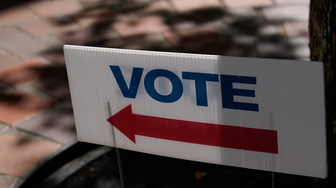In September 2022, Apple launched its most expensive fitness-focused smartwatch yet. Boasting a 36-hour battery life to last a long-course triathlon, the titanium-encased Apple Watch Ultra is equipped with features to support endurance sports enthusiasts, backpacking explorers, and scuba divers – and has been described as the Cupertino-based tech company’s answer to Garmin’s Fenix 7 and Samsung’s Galaxy Watch 5 Pro.
But as smart wearables continue to advance well beyond health tracking features that allow users to monitor their heart rate, sleep quality, and blood oxygen levels, how interested are consumers across various APAC markets in using smart wearables to track their health and fitness? To answer this, we dive into YouGov’s living data on the following questions:
- Do consumers feel working out for fitness is important?
- Do consumers think smart wearables can help encourage healthier lifestyles?
- Do consumers pay attention to health and fitness tracking capabilities when choosing smart wearables?
How important is working out for fitness in APAC?
Latest data from YouGov Global Profiles – the world's largest globally consistent audience dataset – shows that more than three in five consumers in APAC say that exercising to keep fit is important to them (63%). This is markedly higher than other regions, such as AMERS (54%) and EMEA (52%), where over half of consumers feel it’s important to work out for fitness.
Analysing by age reveals that APAC’s relative enthusiasm towards fitness is driven by significantly higher interest among consumers aged 35 years and up (70-73%), compared to their AMERS (46-58%) and EMEA (48-54%) counterparts in the same age range.
Do APAC’s consumers believe that smart wearables can help encourage healthier lifestyles?
Just over two in five of APAC consumers believe that smart wearables can encourage people to be healthier (41%), as data from YouGov Global Profiles also shows.
Regionally, Singapore is the only market where more than half of consumers believe smart wearables can encourage healthier lifestyles (52%), ahead of Thailand (48%) and Australia (47%). Conversely, consumers in Indonesia (36%) and mainland China (37%) are least likely to think smart wearables help users to lead healthier lives.
Analysing by age group reveals an assortment of patterns. In youth-led markets like Australia, Indonesia and Singapore, consumers aged 18-34 years are more likely to believe smart wearables encourage healthy living than consumers aged 45 years and older.
Notably, almost two in three Singapore consumers aged 18-24 years agree that that smart wearables encourage healthier lifestyles (64%) – compared to only around half for other age groups. In Australia, over half of consumers aged 18-44 years think smart wearables have a positive effect on health, compared to around two in five consumers aged 45 and older. Meanwhile, about two-fifths of Indonesian consumers aged 18-34 years believe smart wearables can encourage better health, compared to around one-third of consumers aged 35 years and older.
In elderly-led markets like mainland China and Thailand, however, consumers aged 35 years and older are slightly more likely to believe smart wearables encourage healthy living than consumers aged 18-34 years.
Meanwhile, Hong Kong’s youngest (18-24 years) and oldest consumers (55 years or older) are more likely to agree that smart wearables have a positive effect on health, compared to consumers aged 25-54 years. But in India consumers in the middle age band of 25-54 years are more likely than the youngest (18-24 years) and oldest consumers (55 years or older) to think so.
Are health and fitness tracking capabilities important to APAC’s consumers when choosing smart wearables?
Latest YouGov RealTime Omnibus research shows that among various factors that consumers in APAC consider when choosing a smart wearable, fitness and health tracking features rank second highest after battery life – with just over half of APAC consumers saying it is important (51%).
Regionally, consumers in Singapore (59%), India (58%) and China (51%) are most likely to feel health and fitness tracking features are important when choosing smart wearables, with over half saying so. Conversely, consumers in Hong Kong (44%) and Indonesia (45%) are least likely to think so.
Comparing different age groups by market reveals that in Australia, mainland China and Singapore, younger consumers aged 18-24 years are most likely to scrutinise fitness and health tracking features when choosing smart wearables, while in India and Indonesia it is older consumers aged 55 years and older.
Make smarter business decisions with better intelligence. Understand exactly what your audience is thinking by leveraging our panel of 20 million+ members. Speak with us today.
- Register for monthly insights about the health and pharma industry and tech industry here.
- Explore YouGov’s latest intelligence on the health and pharma and tech sectors here.
Methodology: YouGov Global Profiles is a globally consistent audience dataset with 1000+ questions across 43 markets. The data is based on continuously collected data from adults aged 16+ years in China and 18+ years in other markets. The sample sizes for YouGov Global Profiles will fluctuate over time, however the minimum sample size is always c.1000. Data from each market uses a nationally representative sample apart from India and UAE, which use urban representative samples, and China, Egypt, Hong Kong, Indonesia, Malaysia, Morocco, Philippines, South Africa, Taiwan, Thailand and Vietnam, which use online representative samples. Learn more about Global Profiles.
YouGov RealTime Omnibus provides quick survey results from nationally representative or targeted audiences in multiple markets. The data is based on surveys of adults aged 18 and over in 18 markets with sample sizes varying between 513 and 2,008 for each market. All surveys were conducted online between July to August 2022. Data from each market uses a nationally representative sample apart from Mexico and India, which use urban representative samples, and Indonesia and Hong Kong, which use online representative samples. Learn more about YouGov RealTime Omnibus.









